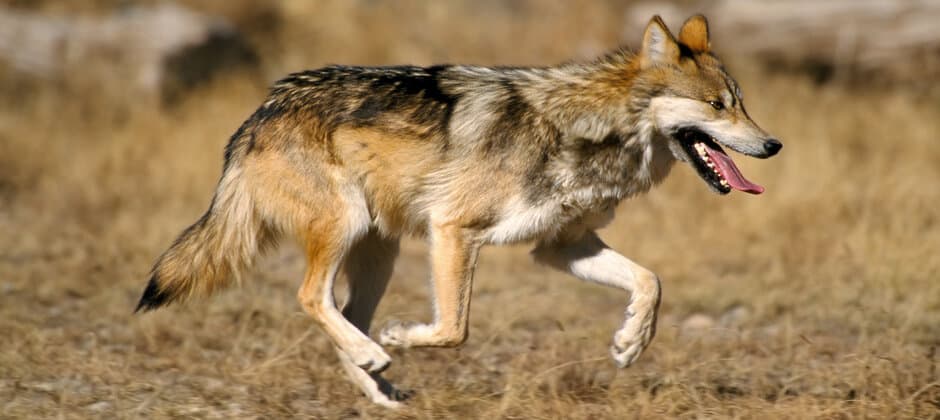Share this article
USFWS updates Mexican wolf recovery plan
The U.S. Fish and Wildlife Service recently released a court-ordered draft revision to its 2017 Mexican Wolf Recovery Plan, providing measures aimed at reducing human-caused mortality like poaching and vehicle collisions.
The revision, released April 14, recognizes the threat of human activity to the subspecies and proposes detailed solutions to mitigate poaching and car collisions. Proposed measures include launching education and outreach campaigns in local communities to improve public awareness and tolerance of wolves; increasing law enforcement presence in areas identified as mortality hot spots; installing wildlife crossings to facilitate wolf movement and reduce vehicle collisions; and implementing livestock conflict avoidance measures.
In addition, the plan directs the release and survival of 60 wolves bred in captivity to enhance genetic diversity. The first five years of implementing the revised recovery plan is expected to cost $41 million.
The Mexican wolf (Canis lupus baileyi) is a subspecies of gray wolf (C. lupus) native to the southwestern U.S. and Mexico. Once common throughout its range, the Mexican wolf was nearly eliminated from the U.S. wild in the early 1970s. By 1976, the subspecies was listed as endangered under the Endangered Species Act. Today, the wild Mexican wolf population has around 200 individuals, with the population steadily increasing by 5% each year for the last six years.
The U.S. Fish and Wildlife Service finalized a new recovery plan for the federally endangered Mexican wolf in 2017. That strategy outlined criteria for meeting recovery objectives, including coordinating with the Mexican government and using adaptive management to address both social and economic concerns.
Soon after the 2017 document’s publication, the USFWS was sued on the basis that the plan lacked details on key components to the species’ recovery, mainly citing that they failed to address prevention of human-caused Mexican wolf mortality like poaching and vehicle collisions. The court ultimately sided with the plaintiffs, and ordered the USFWS to revise the plan.
The USFWS is currently seeking public feedback on the revised Mexican Wolf Recovery Plan. Comments must be submitted by May 16, 2022.
The Wildlife Society supports the integration of science in policy-making and continues to encourage decision-makers and stakeholders to work toward minimizing and mitigating wolf-human conflicts, increasing public tolerance of wolves and retaining wolves as a component of the natural landscape where appropriate. To learn more, check out TWS’ issue statement on Wolf Restoration and Management in the Contiguous United States.
Header Image: A new draft revision to the 2017 Mexican Wolf Recovery Plan provides measures aimed at reducing human-caused mortality like poaching and vehicle collision. Credit: Jim Clark/USFWS








